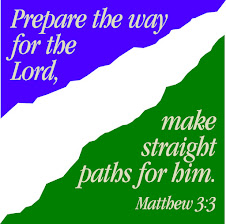False. There are not two sides, at least in most cases there are multiple sides to every story. I remember on a youth event many years ago I went to have dinner with my family while the other adult leader had dinner with the youth at the event. When I returned, four of the children wanted to be the first to tell me what happened. Even though they were describing the same event, they all had a different take--and I am sure none of them told me the WHOLE story.
In the past weeks, I have heard this a lot--there are two sides to every story--and it seems like the other side is the one that wants to prove the other is wrong. Just because there are two sides to the story does not mean both or either are right.In my ministry, I have served with people who were alive during WWII and who served in Germany, and who lived in Germany. I know from history the atrocities of Hitler, and I heard stories of those who lived in Germany at the time that roads were being fixed and things seemed to prosper. Are both true. I have no reason to doubt it--but roads being fixed and prosperity will never be the "other side of the story" to justify the holocaust. No matter what, the Holocaust was evil!
In our world today, at least in our country, we believe we have the right to free speech. I am not a history major or a constitutional expert, but I do remember something about this from learning. But free speech is not the other side of the story for hateful speech of racism, classism, sexicism--hate speech is hate speech and there are consequences to that--no matter what the other side of the story is. Politicians, no matter how great we believe their policies are need to be held accountable to hate speech. Leaders need to be held accountable.Calling someone out in truth is not defaming someone--it is naming the wrong, calling out the ignorance--of your not knowing. Denial or continuing to say hateful things or blame others as the other side of the story is no longer ignorance--for now you know and must be held accountable.
We are about to celebrate one of the most joy filled and holy times of the year as we remember the joy of Jesus coming to earth. We celebrate the joy. But there is another side of the story--Herod was threatened. King Herod did not find joy in the coming of a king, or even the prospect of a coming king. It is his side of the story that led the magi not to return as he had asked. It was his side of the story that led Mary and Joseph to flee and become refugees in another country because their lives were being threatened. Both sides of the story are true, but one is faithful. One is a story of love and the other of fear. 1 John 4:18 says there is no fear in love.
We face many issues in our daily lives where there are two sides to the stories--but generally one is more faithful to the love Jesus commands. We can even make difficult decisions about issues while being faithful to love.
A few years ago in public someone called me frustrating. I have lived with the impact of that for years. I have learned to embrace this, but I would call it more of an agitator or challenger. Jesus has called me not to ignore or be passive about harmful speech directed toward anyone, or anything that does not further the mission of God. The ways things have always been, the way we learned them as children, or the way we witness leaders and personalities on TV must be called out, addressed, named in order to make a difference. We must realize there are consequences to these actions, and learn from them to be better. God is with us. Let us live as if each person we encountered was Christ.








.jpg)






